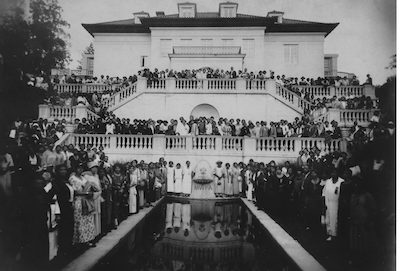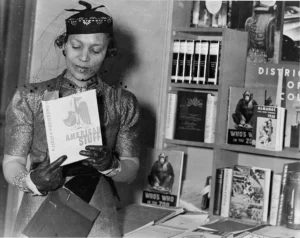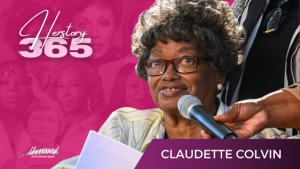by Tracy Chiles McGhee
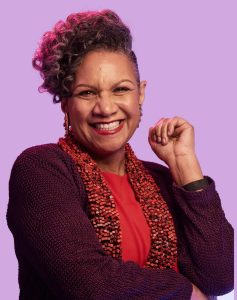 A’Lelia Bundles, acclaimed journalist, historian, and author of “On Her Own Ground: The Life and Times of Madam C.J. Walker“, reflects on her great-great-grandmother’s powerful legacy of giving back and explores how Walker’s life and contributions continue to resonate today. Walker, known as one of the first self-made millionaires in America, used her wealth to uplift Black communities, particularly Black women, through philanthropy.
A’Lelia Bundles, acclaimed journalist, historian, and author of “On Her Own Ground: The Life and Times of Madam C.J. Walker“, reflects on her great-great-grandmother’s powerful legacy of giving back and explores how Walker’s life and contributions continue to resonate today. Walker, known as one of the first self-made millionaires in America, used her wealth to uplift Black communities, particularly Black women, through philanthropy.
Purpose and Power
While Walker is widely recognized for her pioneering success in the beauty industry, her legacy as a philanthropist is equally powerful. Born in 1867 on the same Louisiana plantation where her parents had been enslaved, Walker overcame numerous hardships on her way to success. “Those early experiences, from poverty to becoming a widow at a young age, made her passionate about giving back,” Bundles explained.
“For her, success wasn’t complete if it didn’t mean uplifting others.” Influenced by the church women and club women she observed, her social justice was rooted in empowering other Black women. As she built her company, she applied what she learned about the power of women working together.
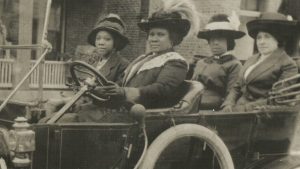
Bundles also noted that Walker was a major supporter of anti-lynching efforts. She made a significant $5,000 donation to the NAACP’s anti-lynching campaign—the largest gift the organization had received at the time. “She saw the racial violence happening around her and felt an obligation to respond,” Bundles shared.
Walker’s philanthropic reach extended beyond donations. She structured her business to empower other women, creating a network of thousands of agents who not only sold products but also engaged in activism. “At her first national convention in 1917, she awarded prizes not only to the women who sold the most products but also to those who contributed the most to charity,” Bundles shared. “She told her agents, ‘Your first duty is to humanity.’”In doing so, Walker emphasized that Black success was about collective uplift, not just personal gain.
Strategic Alliances
Walker’s business success and philanthropy gave her access to social and political spheres where she could influence change. When World War I erupted, Walker advocated for Black inclusion in wartime efforts, despite being excluded from key discussions.
“There was a meeting of prominent Black leaders about the war effort, but women were not invited,” Bundles explained. “Madam Walker knew this was wrong. Instead of being deterred, she hosted Emmett Scott, Booker T. Washington’s former aide, at her mansion, ensuring her voice—and the voices of other women—were heard.”
By hosting gatherings and fostering alliances, Walker carved out a place for herself in male-dominated circles, pushing for Black rights on a national scale. “She was not content to be sidelined. With financial success came influence, and she used that influence to fight for her people,” Bundles emphasized.
Reclaiming Philanthropy
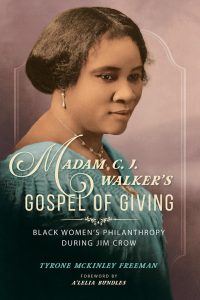 Version 1.0.0
Version 1.0.0
Bundles illuminates the key message of historian Tyrone McKinley Freeman’s book, Madam C.J. Walker’s Gospel of Giving. The book reframes philanthropy by showing that it isn’t something exclusive to wealthy white people. Bundles explained, “Black communities have been giving for generations—through churches, benevolent societies, sororities, and everyday acts of kindness.”
This tradition of mutual aid and support has created a lasting legacy that uplifts entire communities. “It’s the church tithes, the grandmothers who give what they can every Sunday, the civic leaders who work tirelessly for change. Our giving isn’t just about wealth—it’s about showing up for each other in meaningful ways,” Bundles said.
Expanding the Legacy
This spirit of giving continued with Madam Walker’s daughter, A’Lelia Walker, whose impact Bundles explores in her upcoming book, Joy Goddess: A’Lelia Walker and the Harlem Renaissance. Known as the “Joy Goddess” of Harlem, a title bestowed by poet Langston Hughes, the younger Walker used her resources to nurture Black arts and culture during the Harlem Renaissance.
Honoring the Legacy
“I didn’t inherit a trust fund but I did inherit a sense of duty to my community,” confides Bundles. “We all have something to give, whether it’s time, talent, or treasure.” This is philanthropy.
Learn More about Giving Black.
Tracy Chiles McGhee is a Writer and Constituency Engagement Advisor for Unerased | Black Women Speak.

